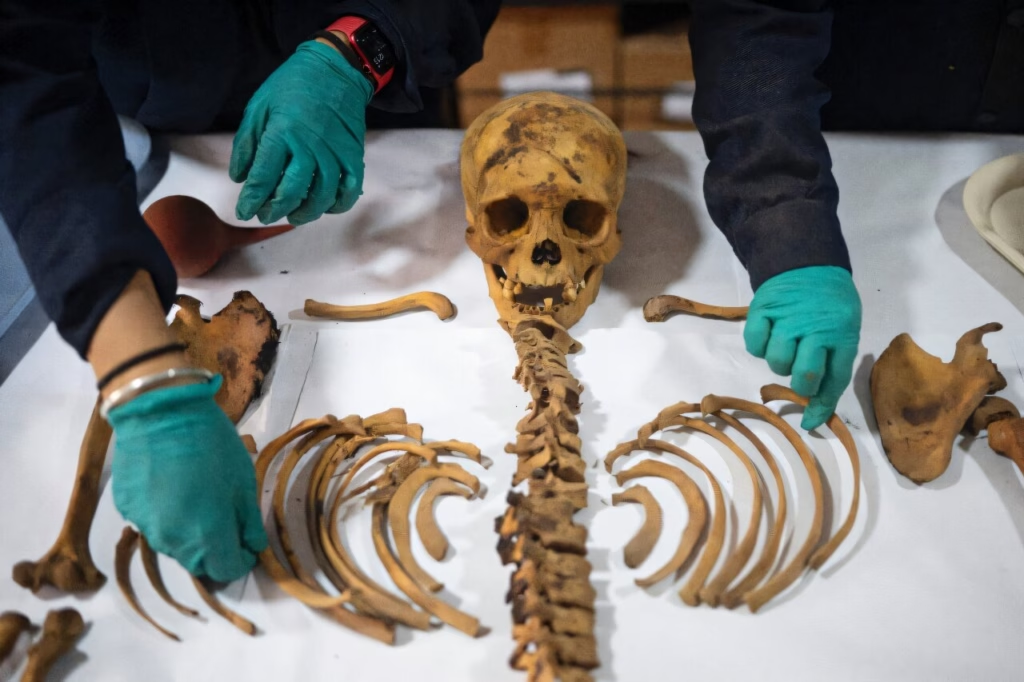A routine gas infrastructure project in Peru’s capital, Lima, led to a remarkable archaeological discovery. While installing a natural gas pipeline, workers unearthed a mummy estimated to be over 1,000 years old, dating back to a pre-Hispanic civilization.
The discovery took place in the Puente Piedra district in northern Lima. Preliminary examinations indicate that the mummy belonged to a boy between the ages of 10 and 15. It was found in a seated position with the knees drawn toward the chest.
Likely Belongs to the Chancay Culture
Experts believe the remains are associated with the Chancay culture, which thrived in the region between A.D. 1000 and 1200. The body was wrapped in a burial shroud made from dried gourds. Nearby, ceramic items including plates, bottles, and jugs decorated with geometric patterns and fishing motifs were also discovered—offering valuable insight into the daily life and beliefs of the Chancay people.

Archaeologists Required by Law in Utility Projects
Peruvian law mandates that archaeologists oversee excavation work during infrastructure projects to protect the country’s rich historical heritage. Calidda, the natural gas company involved in the project, has reported more than 2,200 archaeological findings across Lima since 2004.
Lima: A City Built on Ancient Ruins
Lima is home to more than 500 archaeological sites, including numerous ancient burial grounds known locally in Quechua as “huacas.” This latest discovery adds another fascinating layer to the city’s already deep historical tapestry.
The find serves as a powerful reminder of the ancient civilizations that once flourished beneath what are now bustling modern neighborhoods.
Cover Image Credit: Archaeologist Jose Aliaga uncovers a pre-Inca Chancay mummy, believed to be a female, discovered during gas line work in Lima’s Puente Piedra district. (Photo: AP/Martin Mejia)





